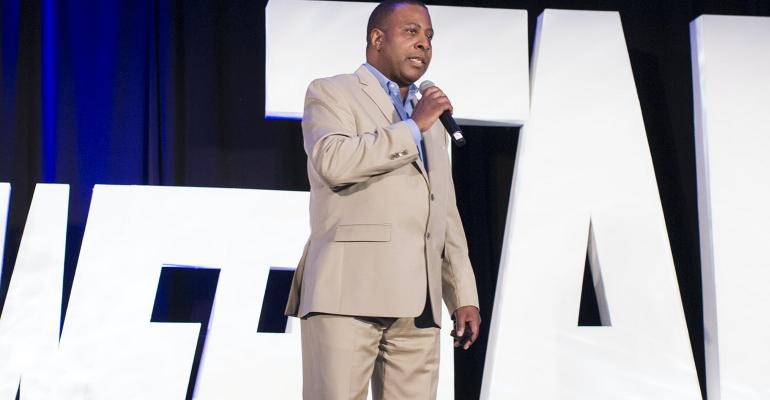An unregistered investment advisor took the alias “Dr. Terrence Cash” in order to misdirect investors from his criminal history and defrauded about 40 investors of approximately $5 million in savings, according to an SEC complaint.
The complaint comes on the same day that the U.S. Attorney’s Office for the Southern District of New York charged Terrence Chalk with securities fraud. He was based in Orlando, Fla., where he was arrested Tuesday and appeared before a judge later that morning.
“As the chairman of a Florida-based investment group, ‘Terrence Cash’ allegedly convinced his clients to trust him with their money, which, in some cases, amounted to the entirety of their retirement savings. Little did they know his investment pitch wasn’t the only lie he told,” Assistant Director in Charge William F. Sweeney Jr. said. “His real name was Terrence Chalk, and he was a previously convicted felon whose pseudonym spelled out exactly what he was after: cash, and lots of it.”
According to the SEC complaint, Chalk began offering financial coaching services around 2016, fashioning himself as a “seasoned entrepreneur, accredited private investor, coach, author and philanthropist.” Chalk marketed his services using the name “Greenlight” and operated a number of different companies under it. Chalk holds no securities licenses and is not registered with the SEC.
Chalk spoke at network conferences, hosted dinners for prospective clients and invited prospective clients to retreats hosted by his company, telling them that he had retired after selling a computer company for $18 million in 2006 to become a full-time investor, where he earned additional millions, according to the SEC.
In fact, Chalk had been in prison, the complaint read. According to the SEC, Chalk founded a computer systems company named Compulinx. Chalk submitted applications for loans and lines of credit after the business hit financial turmoil, and named some of Chalk’s employees and clients as guarantors, often using their personal information without their knowledge. Chalk even used the name and information of a dead relative when seeking a loan. He was arrested in 2006 and pleaded guilty, eventually serving 76 months for making false statements to financial institutions and aggravated identity theft.
Chalk could not be reached for comment as of press time.
Most of Chalk’s clients with Greenlight were not sophisticated investors and included many retirees looking to boost their savings, according to the complaint, which indicated that Chalk charged clients an annual fee ranging from $4,000 to $20,000. In early 2017, Chalk began touting a managed investment fund called the “Chairman’s Fund” to clients, recommending they invest their savings (including retirement savings) for a guaranteed return of 12% per year to be paid in quarterly increments. Chalk told investors he’d invested millions of his own money into the fund and urged retirees to take money from retirement accounts, even though they would be slapped with penalties for early withdrawals.
“For example, one investor incurred a $130,000 penalty for withdrawing money from a pension account, after Clark told the investor that, by investing in the Chairman’s Fund, he would make up the loss within a year,” the complaint read. “In reality, the investor never made up the loss and suffered an additional loss of over 75% of his principal investment.”
Chalk misappropriated the investment funds to pay prior investors or by using the money for his own expenses, according to the SEC. The Justice Department asserted that Chalk spent about $1.7 million on credit card bills, gave tens of thousands of dollars to a criminal defense attorney, more than $70,000 to a luxury car dealer and about $17,000 to an NBA team in what was presumed to be payment for season tickets.
Chalk also used investment funds for investing in speculative businesses, often losing most of the investments. Through Greenlight Advantage, Chalk invested $295,000 in a “speculative cannabinoid venture,” losing most of it. Through all of this, Chalk continued to produce misleading summaries for clients, indicating he’d invested their money when he had not done so, according to the SEC. When new investments started to peter off in 2019, Chalk postponed investor payments, fabricating excuses for why they were delayed, and even threatened to bring legal action against investors who spoke out.
Chalk was charged by the DOJ with one count of securities fraud and one count of wire fraud, each of which carries a maximum potential sentence of 20 years in prison. Meanwhile, the SEC is seeking injunctive relief, as well as disgorgement of ill-gotten gains, prejudgment interest and civil penalties.





